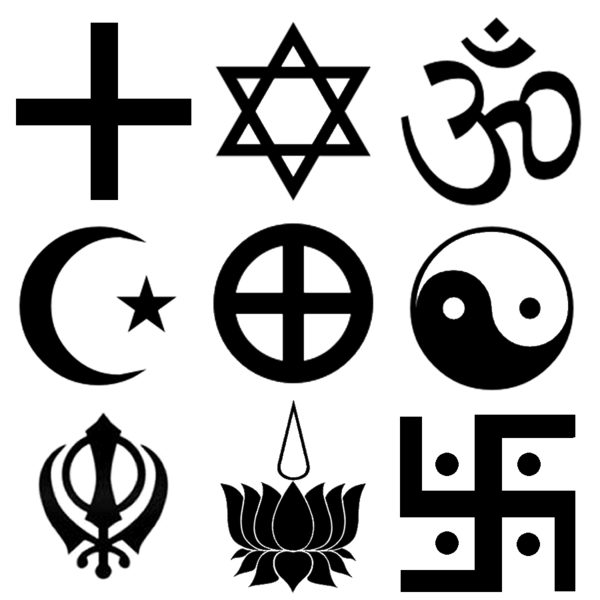Indonesia, an archipelago comprising over 17,000 islands, stands as the fourth most populous nation globally. Renowned for its vibrant tapestry of cultures and traditions, the country is also recognized for its rich religious diversity. Predominantly, Islam holds a place of prominence, but other belief systems, such as Hinduism, Buddhism, and Christianity, synergistically coexist, fostering a unique atmosphere of religious harmony. This multifaceted landscape is not solely an intriguing cultural phenomenon; it also presents profound implications for Indonesian society and its ethos.
Islam: The Predominant Faith
Islam is the predominant religion in Indonesia, embraced by approximately 87% of the population. The majority identifies as Sunni Muslims, embracing tenets grounded in the Qur’an and Hadith. Indonesian Islamic practice is typically characterized by moderate views and a local cultural interpretation that melds with indigenous beliefs. This synthesis can be observed in various aspects of daily life, from the celebration of Islamic holidays to rituals and customs that resonate with local traditions.
In addition to the larger Sunni community, Indonesia is home to a significant number of Shi’a Muslims, particularly in regions like West Sumatra and Java. These groups, although smaller, offer a vital perspective in the broader dialogue about Islamic diversity within the nation. The nation’s largest Islamic organizations, Nahdlatul Ulama and Muhammadiyah, have differentiated roles in promoting a nuanced understanding of Islam, bridging traditional practices with contemporary societal values.
Hinduism: A Historical Legacy
Hinduism, though a minority faith in Indonesia, exerts a remarkable influence, particularly in the cultural and historical context of Bali and parts of Java. This ancient religion, which shaped much of Southeast Asia’s civilization, is marked by its colorful rituals and the veneration of a pantheon of deities. Hinduism in Indonesia often incorporates elements of animism and local customs, culminating in a unique expression of faith that resonates deeply within Indonesian identity.
The Balinese Hindu practice exemplifies this fusion, showcasing vibrant festivals, traditional dance, and intricate ceremonies that reflect a harmonization of beliefs. Incense wafts through the air, and offerings decorate temples, exemplifying both devotion and connection to the spiritual realm. The persistence of Hindu practices, despite the overarching influence of Islam, speaks to the enduring legacies of the island’s past and the respect accorded to diverse religious expressions.
Religious Harmony: A Pillar of Indonesian Society
The Indonesian constitution acknowledges the freedom of religion, allowing for a multitude of faiths to flourish within its boundaries. This legal framework fosters an environment where, despite different beliefs, communal harmony is highly regarded. Public declarations of religious tolerance, both from political leaders and community elites, frequently underscore the nation’s commitment to unity in diversity.
The concept known as “Bhinneka Tunggal Ika,” translating to “Unity in Diversity,” serves as a national motto, encapsulating the spirit of coexistence. This phrase underpins the interaction among different religious groups, highlighting a shared national identity despite varying beliefs and practices. Interfaith dialogues and religious events serve as platforms for mutual understanding, showcasing the collective aspiration for peace and collaboration.
However, the narrative is not devoid of challenges. Instances of religious intolerance and sectarian violence periodically emerge, often aggravated by sociopolitical tensions or radical elements within certain groups. This underscores the continual necessity for vigilance and education in promoting interreligious dialogue that encourages empathy and solidarity.
Christianity: A Contributing Faith
Christianity, though a minority religion, plays an essential role in the Indonesian religious mosaic, accounting for approximately 10% of the population. Divided primarily between Protestants and Catholics, the presence of Christians adds to the pluralistic identity of the nation. Regions such as Papua and North Sulawesi showcase thriving Christian communities actively engaged in cultural and social initiatives, including education and healthcare.
Christian practices, like their Muslim and Hindu counterparts, are interwoven with local customs and interpretations. This intersection often reveals how faith can adapt to and incorporate local expressions of spirituality, thereby manifesting a shared Indonesian identity that transcends religious boundaries.
The Role of Education and Community Initiatives
Education plays a pivotal role in fostering understanding and respect among different religious groups within Indonesia. Initiatives aimed at promoting interfaith education in schools have emerged, emphasizing the importance of learning about other beliefs as a means of fostering mutual respect. These programs are vital, particularly in areas where religious tensions might erupt, providing a foundation for future generations to embrace diversity positively.
Local community organizations frequently conduct interfaith events and festivals, where individuals from different backgrounds can gather to celebrate their cultural and religious heritage. Such initiatives reinforce social cohesion and cultivate friendships that transcend religious affiliations, further enhancing Indonesia’s reputation as a model of religious harmony.
Conclusion: A Tapestry of Faith
Indonesia’s religious landscape is a complex tapestry woven from the threads of Islam, Hinduism, Christianity, and indigenous beliefs. This intermingling of faiths reflects not only a rich cultural heritage but also a compelling narrative of resilience and coexistence. Through education, community engagement, and a collective commitment to harmony, Indonesia exemplifies the beautiful potential of diverse religious traditions living in concert. As global observers of faith dynamics look to Indonesia, it remains clear that understanding, empathy, and dialogue are fundamental in promoting peace and a shared sense of belonging among its diverse populace.



